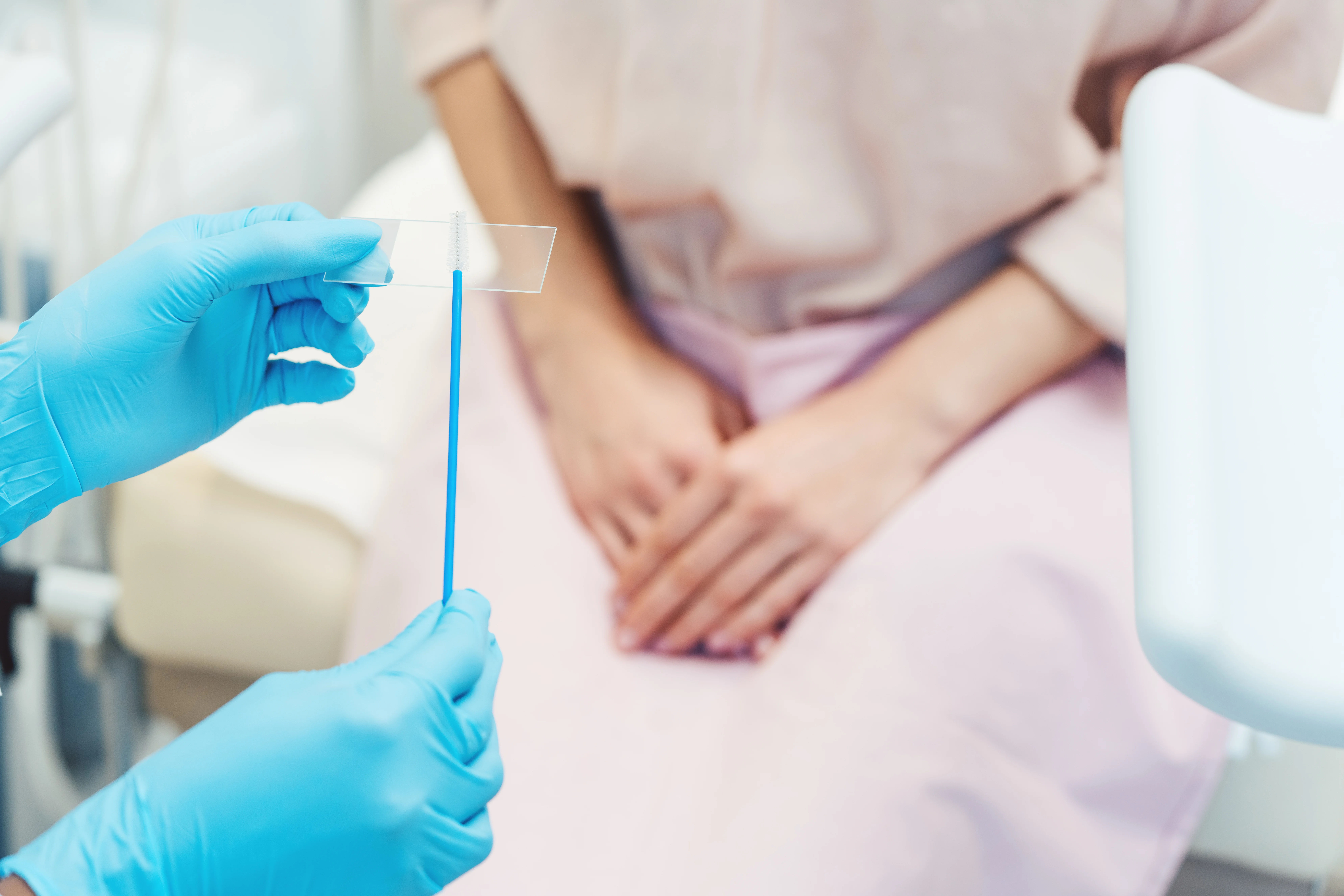What Leads To What Bladder Cancer What It
Learn about bladder cancer, including its causes, common symptoms, diagnostic methods, and modern treatment options for effective care.

Written by Dr. Dhankecha Mayank Dineshbhai
Reviewed by Dr. Vasanthasree Nair MBBS
Last updated on 13th Jan, 2026

Introduction
Noticing a change in your urination habits, especially blood in your urine, can be a frightening experience. While often linked to less serious issues like infections, it's the most common sign of bladder cancer. This disease occurs when cells in the bladder lining grow uncontrollably, forming a tumour. Understanding what leads to bladder cancer, its symptoms, and the advanced treatments available is the first step toward proactive health management. This comprehensive guide will walk you through everything you need to know, from identifying early warning signs to navigating diagnosis and exploring today's effective treatment options. Whether you're seeking information for yourself or a loved one, knowledge is a powerful tool in the fight against cancer. Let's demystify this condition and empower you with clear, actionable information.
What is Bladder Cancer?
Bladder cancer is a type of malignancy that begins in the cells of the bladder, the hollow, muscular organ in your lower abdomen that stores urine. It's one of the most common cancers, particularly affecting older adults, but it can occur at any age.
Understanding the Bladder's Role
The bladder's primary job is to store urine produced by the kidneys before it leaves the body. Its inner lining, called the urothelium, is made up of transitional cells that can stretch and contract as the bladder fills and empties. The vast majority of bladder cancers start in these urothelial cells.
How Cancer Develops in the Bladder Lining
Cancer begins with mutations in the DNA of normal bladder cells. These mutations instruct the cells to multiply rapidly and to continue living when healthy cells would die. This accumulation of abnormal cells forms a tumour. Over time, these cancer cells can invade deeper into the bladder wall and, in advanced stages, spread to nearby lymph nodes and other organs, a process known as metastasis. The depth of invasion is a critical factor in determining the stage of the cancer and the best course of treatment.
Recognising the Signs: Key Symptoms of Bladder Cancer
Early detection significantly improves the outcomes of bladder cancer. Being aware of the symptoms can lead to a timely diagnosis.
The Most Common Red Flag: Haematuria
The most frequent and noticeable early sign of bladder cancer is haematuria, or blood in the urine. This can cause urine to appear pink, red, or cola-coloured. Sometimes, the blood is not visible to the naked eye (microscopic haematuria) and is only detected through a urine test during a routine check-up. It's crucial to remember that haematuria can be intermittent, meaning it may come and go, but it should never be ignored.
Other Urinary Symptoms to Watch For
Bladder cancer can mimic a urinary tract infection (UTI). Other symptoms include:
- Painful urination (dysuria): A burning or stinging sensation.
- Frequent urination: Needing to urinate more often than usual.
- Urgent urination: A sudden, strong need to urinate.
- Feeling the need to urinate without results.
If you experience any of these symptoms, especially if they persist after treatment for a suspected UTI, it is essential to consult a doctor.
Symptoms of Advanced Bladder Cancer
When cancer has grown larger or spread, symptoms may include:
- Inability to urinate
- Lower back pain on one side
- Loss of appetite and weight loss
- Bone pain
- Swelling in the feet
What Leads to Bladder Cancer? Unpacking the Risk Factors
While the exact cause of bladder cancer is not always clear, several well-established risk factors increase a person's likelihood of developing the disease.
The Primary Cause: Smoking and Chemical Exposure
Smoking is the single greatest risk factor, accounting for about half of all cases. Harmful chemicals in tobacco smoke are absorbed into the bloodstream, filtered by the kidneys, and concentrated in the urine. These carcinogens then damage the bladder lining over time. Similarly, exposure to certain industrial chemicals used in the manufacturing of dyes, rubber, leather, textiles, and paint products is a significant risk. Workers in these industries should follow strict safety protocols.
Demographic and Genetic Factors
- Age: The risk increases with age; most people diagnosed are over 55.
- Gender: Men are about three to four times more likely to develop bladder cancer than women.
- Race: White people have a higher risk than people of other races.
- Family History: Having a close relative with bladder cancer can slightly increase your risk.
- Chronic Bladder Inflammation: Repeated urinary infections or long-term use of a urinary catheter may be linked to a
specific type of bladder cancer (squamous cell carcinoma).
Chronic Irritation and Previous Cancer Treatments
Previous cancer treatments, such as certain chemotherapy drugs (like cyclophosphamide) or radiation therapy aimed at the pelvis, can increase the risk. Additionally, a personal history of bladder cancer means you have a higher chance of recurrence.
Diagnosing Bladder Cancer: The Step-by-Step Process
If bladder cancer is suspected, your doctor will recommend a series of tests to confirm the diagnosis and determine the extent, or stage, of the disease.
Initial Tests: Urinalysis and Cytology
A urinalysis checks for blood, infection, or other abnormalities. A more specific test, urine cytology, examines a sample of urine under a microscope to look for cancer cells. These are non-invasive first steps. Apollo24|7 offers a convenient home collection for tests like urinalysis.
The Gold Standard: Cystoscopy and Biopsy
This is the most important procedure for diagnosis. A urologist inserts a thin, lighted tube called a cystoscope through the urethra to see the inside of the bladder. If any suspicious areas are found, a biopsy (tissue sample) is taken during a procedure called a TURBT (Transurethral Resection of Bladder Tumour), which also serves as the initial treatment for early-stage cancers.
Staging the Cancer: Imaging Tests (CT Urogram)
If cancer is confirmed, imaging tests like a CT urogram are used to see if the cancer has spread beyond the bladder. This helps determine the stage (from 0 to IV), which guides all treatment decisions.
Consult a Uro Oncologist for the best advice
Treatment Pathways for Bladder Cancer
Treatment depends heavily on the stage and grade (aggressiveness) of the cancer, as well as the patient's overall health.
Treatment for Non-Muscle-Invasive Bladder Cancer (NMIBC)
This is an early-stage cancer confined to the inner layers of the bladder.
Transurethral Resection of Bladder Tumour (TURBT)
This is the primary diagnostic and treatment procedure. The surgeon removes the tumour and some surrounding tissue
using instruments passed through the cystoscope.
Intravesical Therapy (BCG Immunotherapy)
After TURBT, to prevent recurrence, a liquid drug is placed directly into the bladder. BCG immunotherapy is a common and effective treatment that uses a weakened form of the bacteria that causes tuberculosis to stimulate the immune system to attack cancer cells.
Treatment for Muscle-Invasive Bladder Cancer (MIBC)
This cancer has grown into the deeper muscle wall of the bladder and is more serious.
Radical Cystectomy and Urinary Diversion
The standard treatment is often a radical cystectomy, surgical removal of the entire bladder. In men, the prostate is also removed; in women, the uterus, ovaries, and part of the vagina may be removed. The surgeon then creates a new way for urine to leave the body, a process called urinary diversion.
Bladder Preservation Strategies (Chemo-Radiation)
For some patients who are not candidates for or wish to avoid major surgery, a combination of a limited TURBT, chemotherapy, and radiation therapy (trimodality therapy) can be used to try to preserve the bladder.
Managing Advanced and Metastatic Bladder Cancer
When cancer has spread, systemic therapies are used. These include chemotherapy, targeted therapy drugs that attack specific cancer cell vulnerabilities, and immunotherapy drugs that help the body's immune system recognise and destroy cancer cells.
Can Bladder Cancer Be Prevented?
While there's no guaranteed way to prevent bladder cancer, you can reduce your risk:
- Don't smoke. This is the most impactful action.
- Limit chemical exposure. If you work with chemicals, follow all safety instructions.
- Drink plenty of fluids, especially water, which dilutes potential carcinogens in the bladder.
- Eat a diet rich in fruits and vegetables. The antioxidants in these foods may help reduce your risk.
Conclusion
A diagnosis of bladder cancer can feel overwhelming, but modern medicine has made significant strides in diagnosing and treating this disease. From understanding the critical link to smoking to recognising the early warning signs like haematuria, you are now equipped with vital knowledge. The treatment landscape is diverse, offering hope and effective options for every stage, from non-invasive therapies to advanced immunotherapies. The key is to act promptly upon noticing symptoms and to maintain open communication with your healthcare team. Remember, you are not alone in this journey. If you have any concerns about your urological health, seeking professional medical advice is the most important step you can take.
Consult a Uro Oncologist for the best advice
Consult a Uro Oncologist for the best advice

Dr. Dhruv B. Patel
Urologist
12 Years • MBBS, MS, DrNB (Urology - IKDRC, Ahmedabad)
Ahmedabad
Apollo Hospitals Gandhinagar, Ahmedabad
(25+ Patients)

Dr. Rohit Bhattar
Uro Oncologist
14 Years • MBBS, MS, MCh (Urology), Fellowship in Uro-oncology and Robotic Urology (United Kingdom)
Ahmedabad
Apollo Hospitals Gandhinagar, Ahmedabad
(100+ Patients)

Dr. Rupam Manna
Radiation Specialist Oncologist
7 Years • MBBS MD(RADIO THERAPY), CCEBDM
Barasat
Diab-Eat-Ease, Barasat
Dr. B Shravanthi Reddy
Radiation Specialist Oncologist
8 Years • MBBS, DNB(Radiation Oncology)
Manikonda Jagir
Apollo Clinic, Manikonda, Manikonda Jagir

Dr. K Ramesh
Urologist
23 Years • M.S., FRCS(Glasgow)., IntlFRCS (Glasgow)(Urology), DNB(Urology), FEBU (Fellow of European Board Of Urology)
Chennai
Apollo Hospitals Greams Road, Chennai
(650+ Patients)
Consult a Uro Oncologist for the best advice

Dr. Dhruv B. Patel
Urologist
12 Years • MBBS, MS, DrNB (Urology - IKDRC, Ahmedabad)
Ahmedabad
Apollo Hospitals Gandhinagar, Ahmedabad
(25+ Patients)

Dr. Rohit Bhattar
Uro Oncologist
14 Years • MBBS, MS, MCh (Urology), Fellowship in Uro-oncology and Robotic Urology (United Kingdom)
Ahmedabad
Apollo Hospitals Gandhinagar, Ahmedabad
(100+ Patients)

Dr. Rupam Manna
Radiation Specialist Oncologist
7 Years • MBBS MD(RADIO THERAPY), CCEBDM
Barasat
Diab-Eat-Ease, Barasat
Dr. B Shravanthi Reddy
Radiation Specialist Oncologist
8 Years • MBBS, DNB(Radiation Oncology)
Manikonda Jagir
Apollo Clinic, Manikonda, Manikonda Jagir

Dr. K Ramesh
Urologist
23 Years • M.S., FRCS(Glasgow)., IntlFRCS (Glasgow)(Urology), DNB(Urology), FEBU (Fellow of European Board Of Urology)
Chennai
Apollo Hospitals Greams Road, Chennai
(650+ Patients)
More articles from General Medical Consultation
Frequently Asked Questions
1. Is blood in the urine always a sign of bladder cancer?
No, haematuria can be caused by many non-cancerous conditions, such as urinary tract infections, kidney stones, or an enlarged prostate. However, because it is the primary symptom of bladder cancer, it should always be evaluated by a doctor to rule out serious causes.
2. What is the survival rate for stage 1 bladder cancer?
The survival rates are generally high for early-stage cancers. For stage 1 bladder cancer, the 5-year relative survival rate is around 88%. It's important to remember that these are statistics and individual outcomes vary based on many factors, including overall health and response to treatment.
3. What are the side effects of BCG treatment for bladder cancer?
BCG immunotherapy can cause flu-like symptoms (fever, chills, fatigue), bladder irritation (burning during urination, urgency, frequency), and sometimes blood in the urine. These side effects are usually temporary and manageable.
4. Can you live a normal life without a bladder?
Yes. After a radical cystectomy, patients undergo a procedure called urinary diversion to create a new way to store and pass urine. While there is an adjustment period, most people can return to an active and fulfilling life after bladder removal surgery.
5. What is the main cause of bladder cancer in non-smokers?
For non-smokers, the primary risk factors often include occupational exposure to certain industrial chemicals, chronic bladder infections, previous radiation or chemotherapy, and sometimes genetic predispositions.

.webp)


